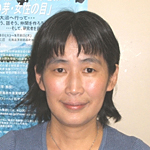
Hokkaido University has suspended two of its professors after an investigation found “improper receipt of research funding.”
One member of the team was awarded more than 15 million yen (roughly $120,000 USD) in research grants from the Japan Society for the Promotion of Science (JSPS), according to the official statement (translated by One Hour Translation).
The researchers share a last name. Hiroyoshi Ariga, a professor of Biomedical and Pharmaceutical Science and the head of a university lab, was given 8 million yen in 2006 and 7.5 million in 2007. It appears that Sanae Ariga also received funds for a similar study, based on the translation:
Upon conducting its review, JSPS found that research items either identical or bearing extremely close resemblance were contained in certain documentation associated with scientific research assistance funding for both Research Faculty of Agriculture Professor Sanae Ariga and Faculty of Pharmaceutical Science Research specially-appointed Professor Hiroyoshi Ariga.
They were both suspended for 10 months.
You can read more about the investigation in the translated text:
(1) An inquiry was initiated after Takashi Mikami was appointed to chair an Investigative Committee consisting of a total of eight other members comprising five from within the university and two external members including at least one attorney.
(2) Research proposals and other documentation relevant to applications for scientific research assistance funding submitted by both parties during the nine years from fiscal 2004 through 2014 were consulted in an examination of whether redundancies existed in research content. Interviews were also conducted with both parties regarding the sequence of events in submission of applications, research methods, etc.
(3) The results include a finding of improper receipt of research funding for the research project outlined in item 3 below, relevant to JSPS Grant-in-Aid for Scientific Research, Basic Research Project (B), which was approved in fiscal 2006. Disciplinary action was taken, as outlined in item 4 below.
The statement also outlined efforts by the university to ensure no further misconduct, including “obligatory training sessions regarding impropriety in the conduct of research activities.”
In consideration of this case, the following measures for ethical education regarding improper conduct of research activities subject to public funding will be thoroughly implemented to instill the appropriate basic attitude among researchers.
(1) The relevant regulations will be revised and thoroughly disseminated, based on the “Guidelines Regarding Responses to Wrongdoing in Research Activities, Etc.” instituted by the Minister of Education, Culture, Sports, Science and Technology (issued December 26, 2014 and effective April 1, 2015).
(2) A leaflet on prevention of impropriety in the conduct of research activities (i.e., improper use of research funds, wrongdoing in the conduct of research activities) was produced and distributed to all employees (distribution completed in March 2015).
(3) Institution of obligatory training sessions regarding impropriety in the conduct of research activities (conducted beginning FY 2015).
(4) Notification and training are to be implemented in explanatory conferences on applications for scientific research grant-in-aid, with attention to methods for drafting research proposals, and relevant problematic precedents (conducted beginning FY 2015).
(5) Prior conformation of application content in cases where scientific research grant-in-aid applications are submitted by members belonging to the same research group, and where multiple researchers submit such applications as research representatives for given projects (conducted beginning FY 2015).
A spokesperson for Hokkaido University said the university didn’t have anything to add:
Per your inquiry, the University does not have any other comment.
We’ve contacted both of the professors and we’ll update with any reply.
Like Retraction Watch? Consider making a tax-deductible contribution to support our growth. You can also follow us on Twitter, like us on Facebook, add us to your RSS reader, and sign up on our homepage for an email every time there’s a new post. Click here to review our Comments Policy.